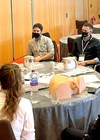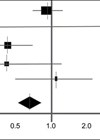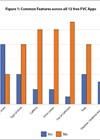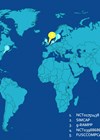Features
BAUS Section of Trainees (BSoT)
7-9 March 2022 • Edinburgh, UK • Nicholas Boxall, Chair (Elect), BSoT, ST6 Urology, Health Education East of England; and Neil Harvey, BSoT Chair, ST7 Urological Surgery, North West Deanery. The BSoT conference kicked off on Monday 7 March with...
New senior appointments at The Urology Foundation
New Chief Executive appointed The Urology Foundation (TUF) has appointed Rebecca Porta as Chief Executive. An established and experienced charity Chief Executive, Rebecca brings a wealth of experience having held senior roles within some of the UK’s leading health and...
Medical statistics for urologists: part 2 – probability and hypothesis testing
Following on from Part 1 of this series (Part 3 available here), this article aims to build on other analytical techniques commonly used within medical research, focusing on simple examples. Probability and testing Before exploring hypothesis testing, it is vital...
Priapism in sickle cell disease
What is sickle cell disease? Sickle cell disease (SCD) is one of the most common single-gene disorders in the UK affecting approximately one in every 2000 live births. Approximately 20-25 million people worldwide have SCD. It predominately affects those of...
Moving hospitals as a consultant urological surgeon: what are the challenges?
Despite over 100 unfilled consultant urological surgeon posts in the UK, the reasons why an established surgeon should wish to move hospitals can still be viewed with suspicion. Why is this the case, when in many other careers, both within...
25 Years of Prostate Cancer UK
As leading men’s health charity, Prostate Cancer UK, celebrates its 25th anniversary, top researchers reflect on the huge progress in testing, treatment and support for men over the past 25 years. 25 years of beating prostate cancer together Matthew Hobbs,...
Frequency-volume chart apps for nocturia: keeping urologists up at night
Background Nocturia is a bothersome symptom and the leading cause of disturbed sleep in adults. It is extremely common, with 55% of men and 60% of women aged 50 waking at least once in the night, with a further 20%...
Men with a susceptibility to prostate cancer: implications of ethnicity in PCa risk-prediction and diagnosis
The diagnostic and therapeutic landscapes of prostate cancer (PCa) have advanced at great pace in the past decade. However, disparities in access to care, clinical outcomes and representation in therapeutic, interventional and genomic studies continue to exist between Afro-Caribbean (AC)...
TUF Innovation and Research Fund
Since The Urology Foundation (TUF) was founded 26 years ago the charity has been at the heart of the step change in the treatment and care for urology patients. Building on past achievements, TUF are continuing to develop programmes and...
Movember launches world’s largest cancer real world evidence network
Movember has launched the world’s largest prostate cancer and testicular clinical and research network, aimed at improving the overall survival and quality of life for those living with diseases that affect over 1.4 million men worldwide every year. The leading...
Trials offering cytoreductive surgery for men with de novo synchronous metastatic prostate cancer
Life expectancy in men diagnosed with de novo synchronous metastatic hormone-sensitive prostate cancer (mHSPC) has risen to a median of 4.8 years with upfront systemic agents (such as docetaxel) in addition to standard androgen deprivation therapy (ADT) [1-3]. Within this...
Supporting return to clinical practice
There are many reasons for a clinician to take time away from clinical practice. These include parental leave, research, a period of ill health, a career break, or the opportunity to spend time pursuing other interests. At any one time,...














